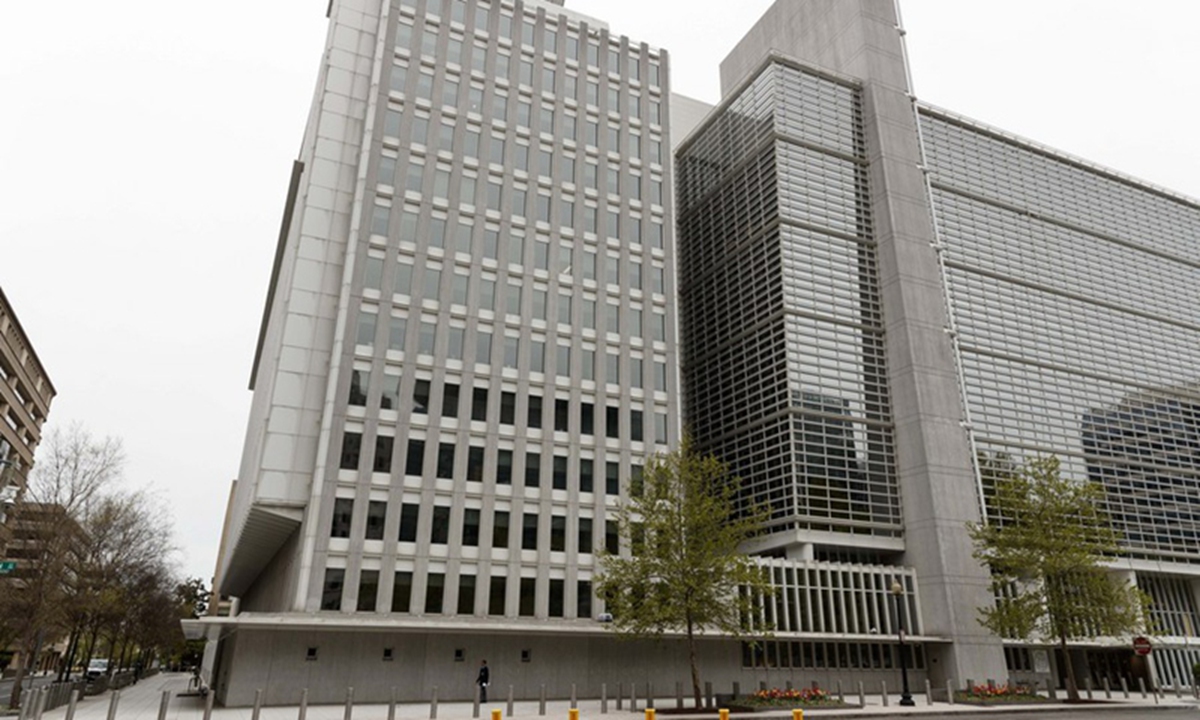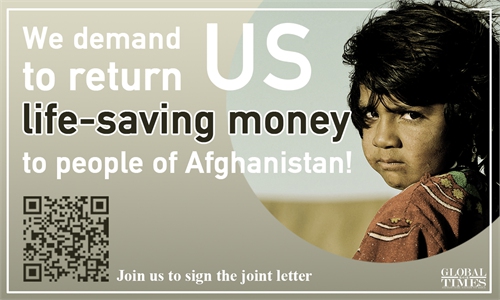
The World Bank headquarters in Washington DC, the US Photo: Xinhua
World Bank President David Malpass called for a new process for restructuring the debt burden of developing nations, citing concerns over a lack of transparency relating to the amounts they owe to China, Bloomberg reported on Wednesday. "We're working to avoid" the circumstance where assistance being sent to developing nations goes to China in the form of debt servicing, he said.It is not uncommon to see some in the West, particularly in the US, constantly push accusations of lack of transparency and the "China debt trap" narrative to slander Chinese loans and investments in overseas projects. It is however very uncommon to see the head of a world's major multilateral financial institution to make similar claims.
That's not all. Malpass also said that countries are working to diversify their supply chains and reduce their dependence on China, which is "probably good for everyone," according to Reuters. Many US officials have made similar suggestions and have actually been pushing for what they call a "decoupling" from China.
At a time when emerging economies are facing unprecedented pressure from the deterioration of the external environment, the World Bank is supposed to call for countries to work together to stabilize supply chains and actively support developing countries in terms of their debt restructuring.
Dancing to Washington's tune and parroting groundless accusations targeting China's loan agreements with other countries does not help any country in any way.
Providing financial support to help developing countries through multilateral mechanisms is why the World Bank was established. Therefore, the multilateral lender should not be a place for geopolitical calculations of certain members.
As for China's loans and investments overseas, if anything, the "lack of transparency" rhetoric only reflects the West's concern and nervousness about China's smooth development of economic and trade cooperation with other developing countries.
Following years of efforts, China has become the world's second-largest economy with a massive amount of foreign exchange reserves, making its overseas loans and investments possible. Moreover, China has the same experience as other developing countries and has the best understanding of what they need the most to upgrade their economies. Therefore, the past years have seen great progress in cooperation between China and other developing countries, especially in the field of infrastructure construction.
The smooth progress of China's infrastructure cooperation has precipitated the US and its allies to accuse China of setting up so-called "debt traps," but such accusations are a complete a distortion of the facts.
Regardless of the increase in China's overseas loans, multilateral institutions and rich Western countries are still the biggest creditors to most developing countries that are facing serious debt risks.
There is no denying that emerging economies are facing a rising risk of default, which is directly related to the broader economic volatility in the world. And this is exactly why it is important for the World Bank and other multilateral financial institutions to refrain from geopolitics and facilitate cooperation among countries within a multilateral framework, rather than instigating tension among countries.
In the history of the World Bank, China has been the most successful country in using World Bank loans to achieve economic development. What the bank should do now is to strengthen cooperation with China and find more effective ways to assist emerging economies based on China's experience.



